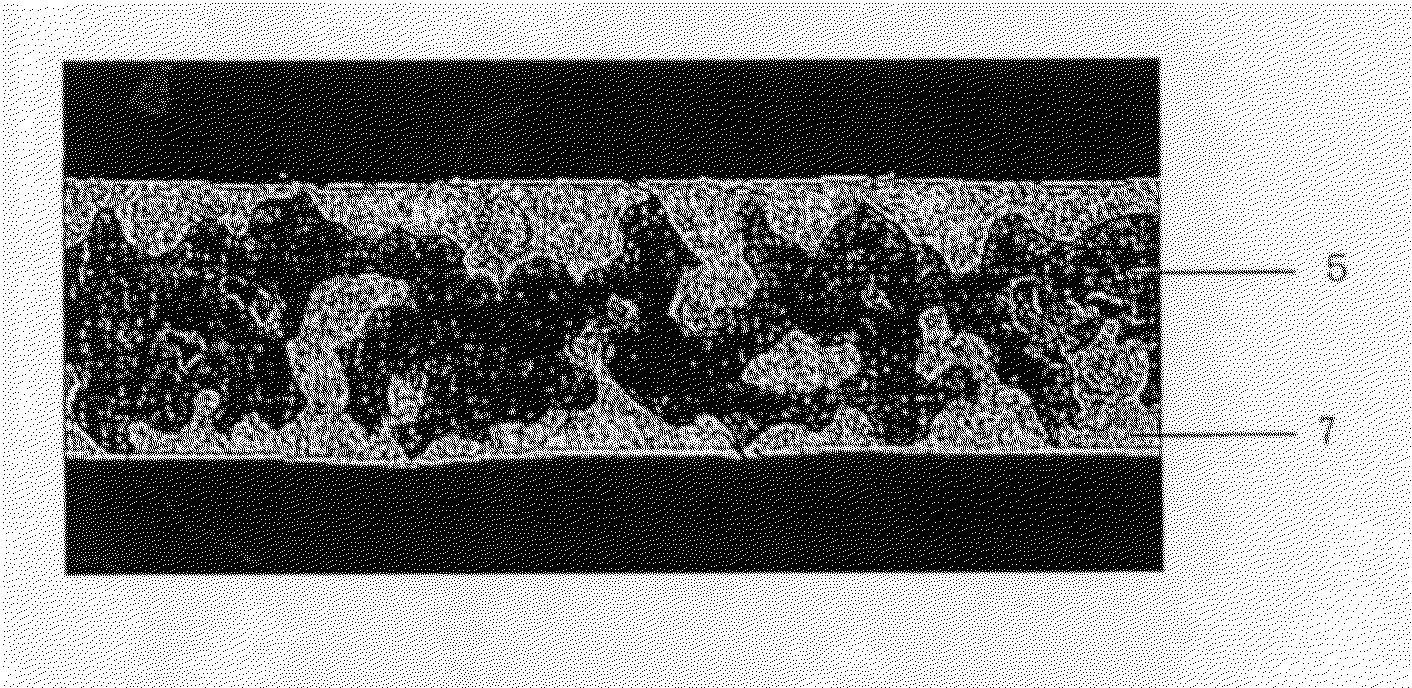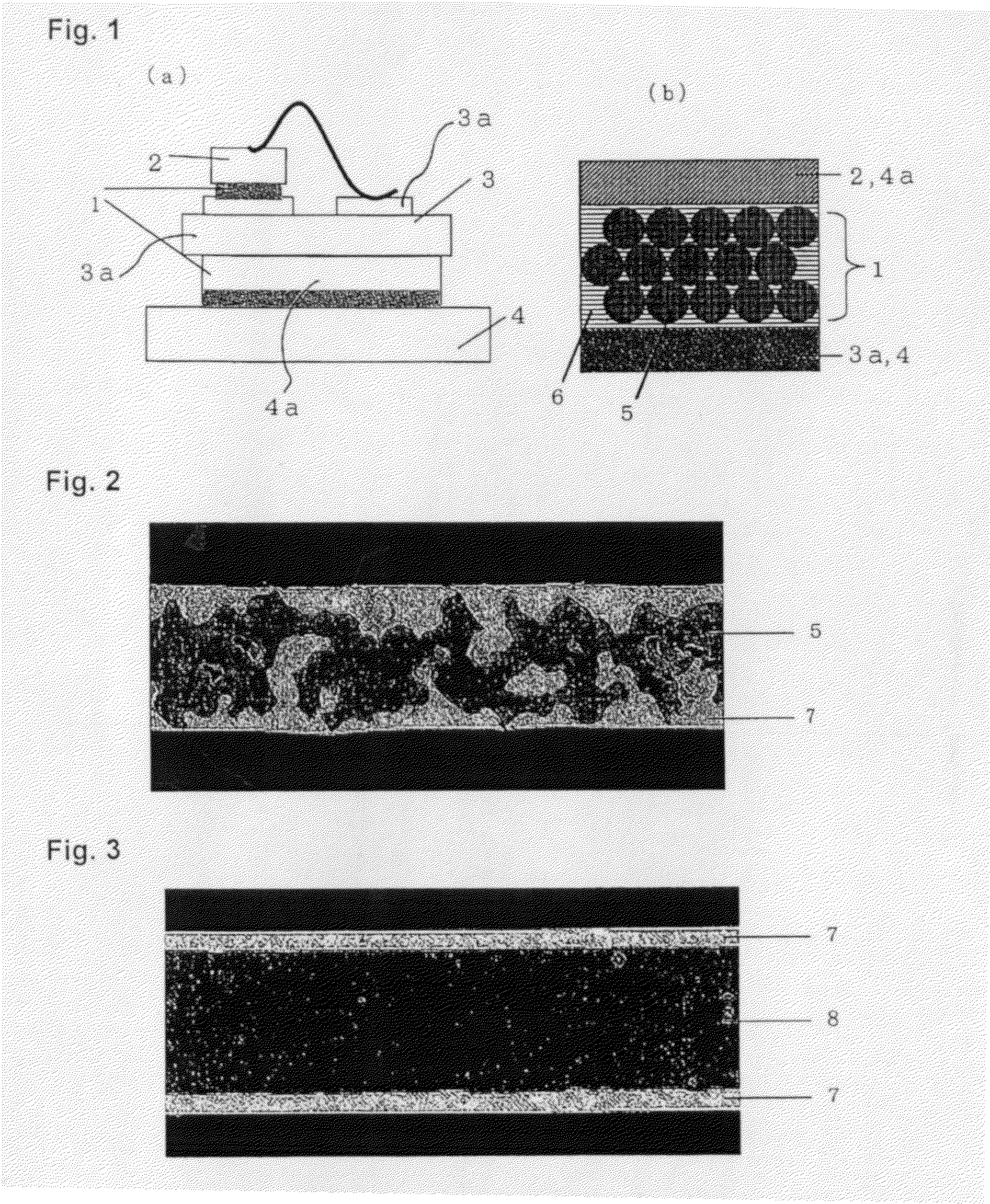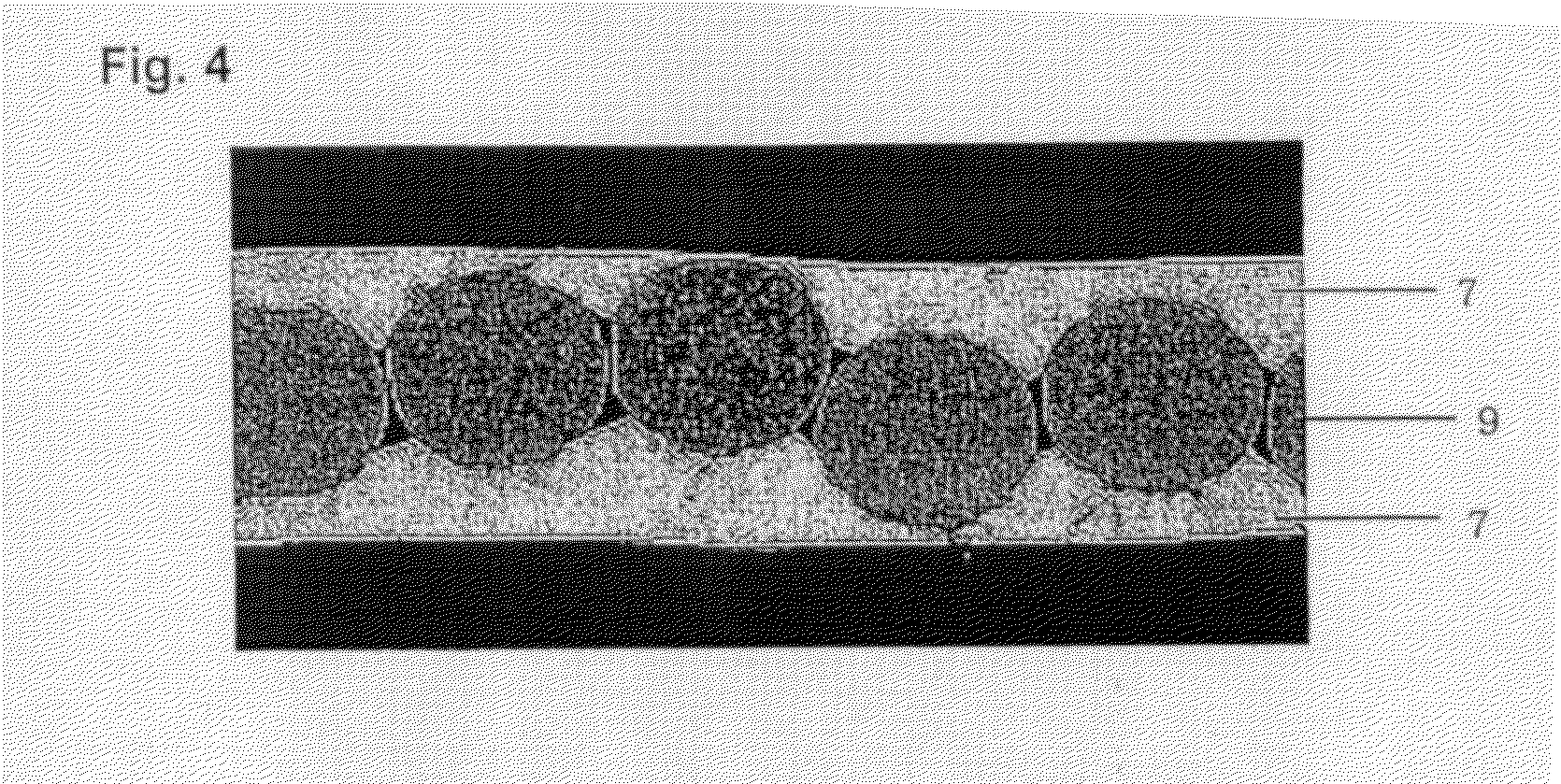Bonding material for semiconductor devices
a bonding material and semiconductor technology, applied in the direction of dielectric characteristics, manufacturing tools, solventing apparatus, etc., can solve the problem that it is impossible to use lead-free solder alloys as high temperature solders for internal bonding of semiconductor devices, and achieves the effects of low cost, high reliability and low voids
- Summary
- Abstract
- Description
- Claims
- Application Information
AI Technical Summary
Benefits of technology
Problems solved by technology
Method used
Image
Examples
example 1
[0066]Phosphorus bronze powder (product name, P-201) manufactured by Fukuda Metal Foil and Powder Company, Ltd. was sintered at 880° C. in a reducing atmosphere to prepare a porous metal body (length of 1 meter, width of 15 mm, thickness of 0.1 mm, porosity of 25%), and it was immersed in various solder baths at 250-260° C. to impregnate its pores with lead-free solder. Flux was not used for impregnation with the molten solder. Instead, an oxide film was removed from the porous metal body by impinging ultrasonic waves in the solder bath, and the formation of voids was prevented. The pore structure of the porous body which was used had continuous pores connected in a mesh-like manner, and the pores opened onto the surface of the plate.
[0067]The thickness of the bonding material, namely, the thickness of the metal body plus the adhered amount of solder was controlled by the speed of removal of the porous metal body from the solder bath. It was adjusted so that the total thickness of t...
example 2
[0076]A bonding material measuring 5 mm×5 mm was punched from the bonding material manufactured in Example 1, it was bonded to a Cu plate or an Ni-plated Cu plate measuring 10 mm×10 mm, an Sn—Cu intermetallic compound was formed to simulate a bonding portion.
[0077]A model IrF-TP high temperature observation apparatus manufactured by Yonekura Seisakusho Co., Ltd. was used for bonding, and heating was carried out with a heating temperature of 350° C. for 15 minutes.
[0078]The amount of intermetallic compounds (IMC) which were formed in the bonding portion which was obtained in this manner was measured. The measurement method used a model JSM-7000F scanning electron microscope manufactured by JEOL Ltd., the region where compounds were present was sensed from the cross section of the bonding portion, the detected area was measured, and made the amount of compounds which were formed (μm2). The results are shown in Table 2.
[0079]In the same manner, the voids percentage of the bonding porti...
example 3
[0086]Using the bonding material manufactured in Example 1 (see Example 1 in Table 2), a silicon chip was bonded to an insulating plate, and a Cu substrate was bonded thereto to form a semiconductor device as shown in FIG. 1. Next, the semiconductor device was mounted on a printed circuit board at a reflow temperature of 240° C.
[0087]The internal bonds of the semiconductor device did not melt at the time of mounting.
PUM
| Property | Measurement | Unit |
|---|---|---|
| porosity | aaaaa | aaaaa |
| thickness | aaaaa | aaaaa |
| thickness | aaaaa | aaaaa |
Abstract
Description
Claims
Application Information
 Login to View More
Login to View More - R&D
- Intellectual Property
- Life Sciences
- Materials
- Tech Scout
- Unparalleled Data Quality
- Higher Quality Content
- 60% Fewer Hallucinations
Browse by: Latest US Patents, China's latest patents, Technical Efficacy Thesaurus, Application Domain, Technology Topic, Popular Technical Reports.
© 2025 PatSnap. All rights reserved.Legal|Privacy policy|Modern Slavery Act Transparency Statement|Sitemap|About US| Contact US: help@patsnap.com



